Virgin Flying Club changes: talking it through with the VP of Loyalty
Links on Head for Points may support the site by paying a commission. See here for all partner links.
As you may already have seen, Virgin Atlantic has announced some sweeping changes to the way Flying Club works, including a move to dynamic pricing for redemptions.
If you haven’t already, you should take a look at my article here. Virgin Atlantic’s official guidance is here.
To answer some of our questions (and there were a lot!) I spoke to Anthony Woodman, Vice President of Loyalty at Virgin Atlantic, who explained some of the changes and why they are happening.
Whilst our conversation was not recorded, the following article is based on the notes I took.
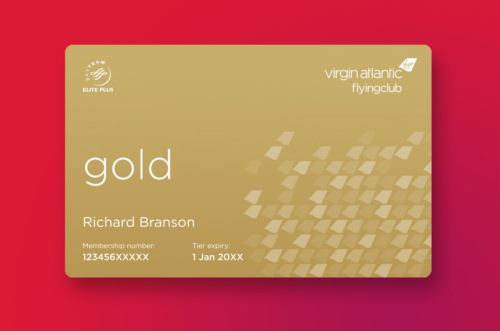
Introducing dynamic pricing for redemptions
Mention ‘dynamic pricing’ at a frequent flyer event and you might send shivers down peoples back: in general, it is not a model that people love because it introduces a level of uncertainty when it comes to redemption pricing and can make collecting points a moving target.
However, Virgin Atlantic has come to believe that there are limits to the fixed-price model. Broadly speaking, Virgin is dropping the “guaranteed availability model because demand has outstripped supply in Flying Club” with the number of Flying Club customers on flights broadly doubling since 2019.
With more Flying Club members than ever, demand for the 12 guaranteed seats per flight has become a problem. Seats on key routes are snapped up 331 days in advance when they go on sale.
Virgin Atlantic believes this is bad for customers and leaves many Flying Club members stuck with high points balances and no attractive way to spend them.
It also forced people to plan a year in advance, which many people don’t like to do, and created an ‘uncomfortable’ booking experience with members jockeying with each other to book seats as soon as they became available.
The other problem with fixed pricing is that it is, well, fixed. Whilst Virgin Atlantic operates a business with peaks and troughs, at many times of the year it is still flying planes empty and would like to increase incentives for redeeming during these quieter periods.
The answer, according to Anthony, is dynamic pricing. “We’re trying to launch dynamic pricing so that we can offer every seat available …. but doing it in a way that makes it work for the UK market.”
He advised me that this is closer to the model adopted by Air France KLM’s Flying Blue than it is by the much-maligned Delta SkyMiles system, although you will also see Flying Blue offering business class reward seats for 1 million miles return from time to time ….
By opening up all seats for redemption, with pricing based on supply and demand, Virgin Atlantic claims that it can make better use of its existing assets whilst also offering customers the opportunity to book flights they want:
- If you are points rich, you can book the exact seat you want, when you want it, even if that means paying a disproportionately high amount at short notice.
- If you are points poor, or want to maximise the value of your points, you can plan your trip around the best deals by being flexible on dates and saving yourself points.
It also opens up additional flexibility that wasn’t available previously. Wanted to fly your family of four out to Los Angeles in Upper Class? Tough, under the existing system Virgin Atlantic only guarantees two seats are available per flight. Under the new system you can book all the seats you want.
This flexibility is particularly useful if you are sitting on more points than you can reasonably spend. Perhaps you want to take 15 of your mates on a stag or hen do to New York in economy, rather than the same number of points for a couple of Upper Class tickets. Now you can.
The snag, of course, is that there would already be four seats in Upper or 15 seats in Economy for redemption if the flight was expected to be quiet. Virgin Atlantic has always opened up additional seats on lightly sold flights.
On flights which suddenly have more availability from 30th October you should expect to pay a disproportionately high price because they are expected to be busy – hence the lack of extra seats today.
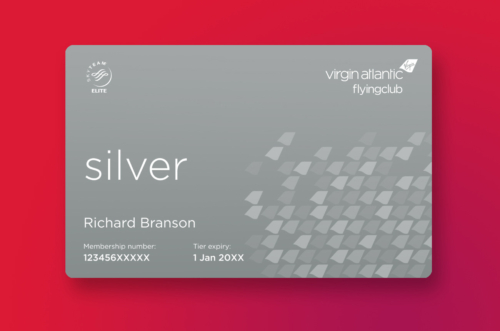
More redemptions, same value?
One of Anthony’s goals in opening up more seats for redemption is to double the number of Virgin Points being redeemed on Virgin Atlantic “at the same cost per point.”
(This is a confusing statement, because it implies that only a small percentage of Virgin Points earned are being redeemed on Virgin Atlantic. This feels odd, especially as the Virgin Flying Club base makes up the bulk of Virgin Red members and the average flight redemption is far more expensive than almost all Virgin Red products.)
In other words, the value of the average redemption should remain broadly similar once these changes are implemented on 30th October.
In fact, I am told the new dynamic pricing model “takes the same price per point model as is currently in use today.”
That should be good news. Of course, dynamic pricing opens the doors for more extreme pricing – both higher and lower – but the average, across the entire ecosystem, should remain the same.
Some people will get less value – far less value, in cases where demand for the flight is high and cash prices are high – but others will get more if they fly during particularly quiet periods and book a ‘Saver’ award ticket. It’s not good news, of course, if you have children in school and are tied to peak periods.
Saver tickets explained
Replacing the previous guaranteed fixed-rate availability are Saver Seats. These will become Virgin’s lowest-price reward tickets.
These will also be dynamically priced, with roughly a 40% differential between the lowest cost saver tickets and the highest cost saver tickets. Taxes and fees will also adopt a more dynamic approach.
This is a key point to note. Saver pricing is NOT going to fixed and there will NOT be a reward chart. Saver pricing is effectively whatever Virgin Atlantic says it is.
We have asked Virgin Atlantic if they can provide some examples, but I suspect we will have to wait until the changes go live to see the full extent of what is happening. The only example we have so far is that the lowest one-way economy flight to New York will be 6,000 points, rather than the 10,000 points currently charged.
Taken together, Saver pricing “will be a much better price point than we’ve ever offered before.”
Anthony described the new pricing model as a “smooth curve” between high value (ie. cheaper) and low value (ie. more expensive) seats. “We want to to offer customers attractive price points at all points in the curve.”
Whilst some seats on certain flights on certain days will be more expensive, it also potentially unlocks seats for redemption that were never previously available.
Moving to dynamic pricing removes the certainty of fixed value, but “it offers more customers the value that we see today.”
I asked Anthony whether there would be a guaranteed number of seats available at the lowest Saver prices. The answer, unfortunately, is no. But “if there’s nothing there then it will look like a marketing exercise and customers will be disappointed …. ultimately it’s in nobody’s interest to do that.”
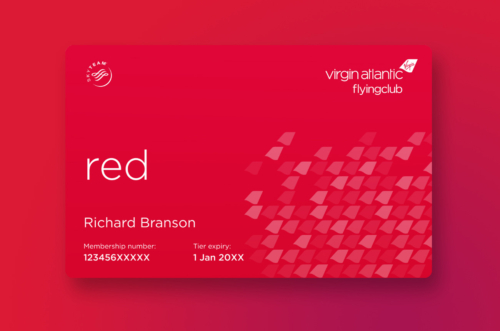
On the other hand ….
Rob is away for a few days but when I spoke to him he flagged the following issues that concerned him:
- Virgin Atlantic already opens up every seat for redemption, because you can book any seat using ‘points and cash’. The only reason people don’t use this, cancellation rules aside, is the weak 0.55p per point redemption rate. Why not simply improve this to 1p per point?
- Virgin Atlantic already has the ability to offer more availability at off-peak periods by …. making more seats available. It also already has peak and off-peak pricing. It also offers ‘any seat, any day’ to Gold members for a 100% points premium. The airline is giving the impression that it currently has flat year-round pricing, never releases extra seats and doesn’t do anything extra for top tier members, which is not the case.
- A better option may have been to create two tiers of availability, restricting the seats that can be booked by SkyTeam partners. This ensures that more Virgin Flying Club members get to redeem.
- Another option, which would keep the programme easy to understand, would be to retain reward charts and follow the Qatar Airways model. Guarantee some seats and then charge 1.5x or 2x more for additional availability.
- The number of people sitting on 1m+ Virgin Points and who can take advantage of this extra availability for their entire family is tiny. We are giving up the ability for everyone to access 12 guaranteed seats per flight so that a few high rollers can book the seats they want. Is that a good trade off?
- When someone starts exploring the Virgin Atlantic website and sees Upper Class reward flight pricing at 500,000 Virgin Points at times, what message does that send? Isn’t it actually better, image wise, to show no flights available?
- Good loyalty schemes make you a promise – ‘do this, you can have that’. Buy 10 coffees, get a free one. Do a certain number of flights or spend £x on your credit card and you can fly somewhere. The promise no longer holds. Virgin Atlantic is saying ‘give us your flights, use our credit card, and you may or may not be able to afford a flight on the route you want’. Is that attractive?
Conclusion
Virgin Atlantic’s decision to move to dynamically priced redemptions raises a lot of questions. Unfortunately, I don’t think we will get the full picture until we see it in action when it launches on 30th October.
Having spoken to Anthony, Virgin Atlantic believes – or is claiming – that this is a net improvement. There will be more flexibility and more options on offer, even if some of those options (such as last minute bookings on busy flights, or flights in school holidays) are going to be prohibitively expensive.
However, Anthony was also very clear that they see the move as maintaining equivalent value to what you currently get, although given taxes and fees can be as high as £1,000, that’s not exactly saying much! You can also retain ‘equivalent value’ by charging very little off peak and large sums in August but I doubt members would appreciate that.
The one positive thing you have to bear in mind is that Flying Club is one way that Virgin Atlantic tries to differentiate itself from British Airways. It would be crazy to trash the programme in a way that sees flyers moving to BA, although the damage may already have been done given the failure to provide pricing examples in advance. Are you going to fold or twist?
PS. If you are not a regular Head for Points visitor, why not sign up for our FREE weekly or daily newsletters? They are full of the latest Avios, airline, hotel and credit card points news and will help you travel better. To join our 70,000 free subscribers, click the button below or visit this page of the site to find out more. Thank you.
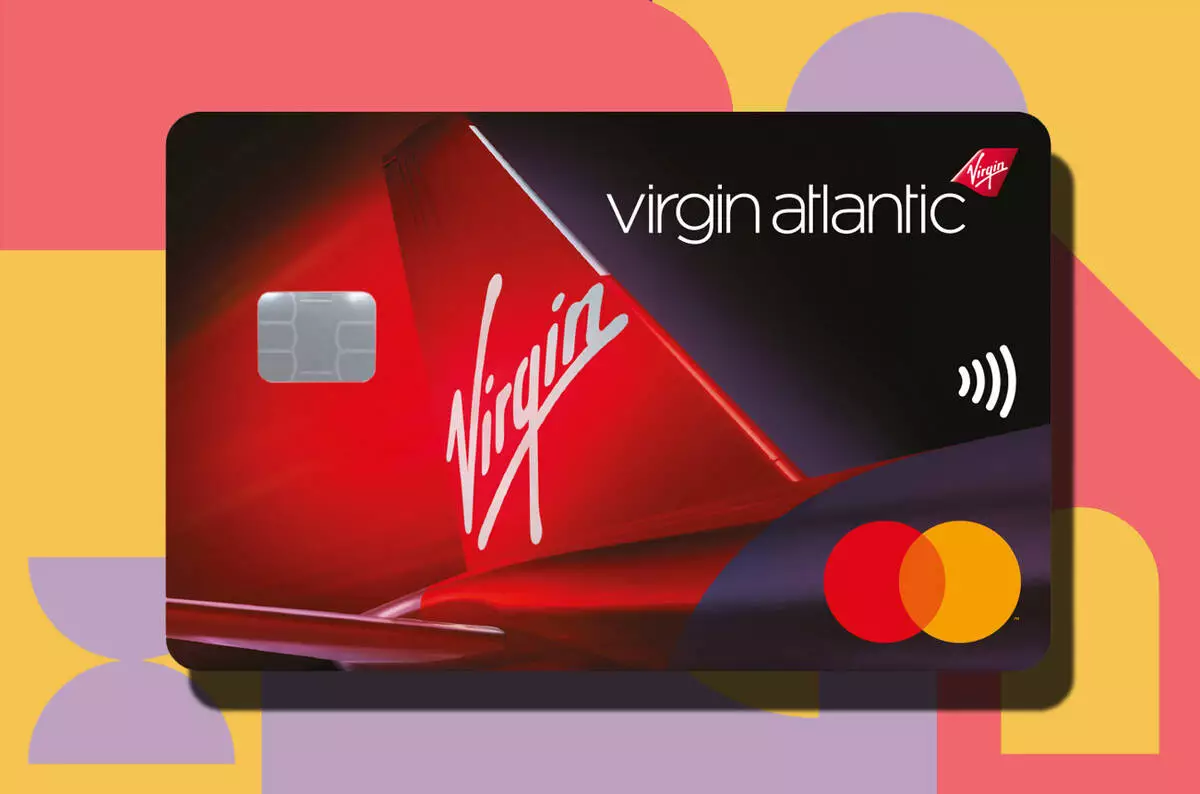
How to earn Virgin Points from UK credit cards (July 2025)
As a reminder, there are various ways of earning Virgin Points from UK credit cards. Many cards also have generous sign-up bonuses.
You can choose from two official Virgin Atlantic credit cards (apply here, the Reward+ card has a bonus of 18,000 Virgin Points and the free card has a bonus of 3,000 Virgin Points):
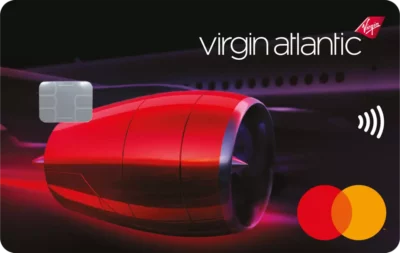
Virgin Atlantic Reward+ Mastercard
18,000 bonus points and 1.5 points for every £1 you spend Read our full review
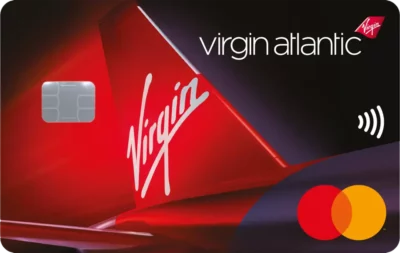
Virgin Atlantic Reward Mastercard
3,000 bonus points, no fee and 1 point for every £1 you spend Read our full review
You can also earn Virgin Points from various American Express cards – and these have sign-up bonuses too.
The American Express Preferred Rewards Gold Credit Card is FREE for a year and comes with 20,000 Membership Rewards points, which convert into 20,000 Virgin Points.

American Express Preferred Rewards Gold Credit Card
Your best beginner’s card – 20,000 points, FREE for a year & four airport lounge passes Read our full review
The Platinum Card from American Express comes with 50,000 Membership Rewards points, which convert into 50,000 Virgin Points.

The Platinum Card from American Express
50,000 bonus points and great travel benefits – for a large fee Read our full review
Small business owners should consider the two American Express Business cards. Points convert at 1:1 into Virgin Points.

The American Express Business Platinum Card
50,000 points when you sign-up and an annual £200 Amex Travel credit Read our full review

The American Express Business Gold Card
20,000 points sign-up bonus and FREE for a year Read our full review
Click here to read our detailed summary of all UK credit cards which earn Virgin Points.









Comments (174)